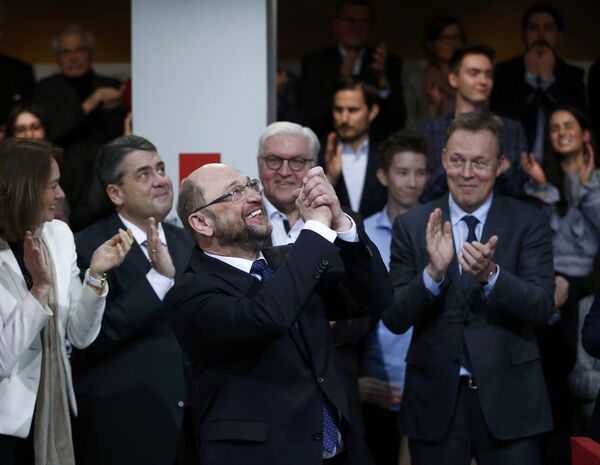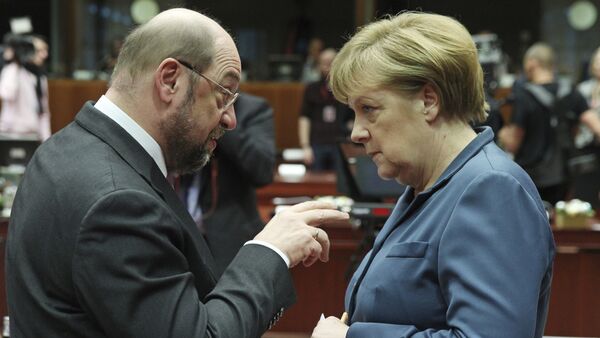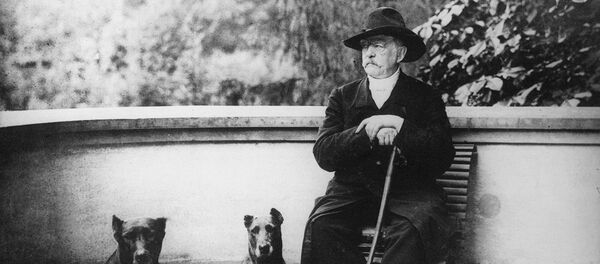Merkel would win the elections if the Chancellor was elected directly, with 38 percent of respondents supporting her candidacy, the survey prepared by the pollster Forsa for the German magazine Stern and television channel RTL revealed. Former European Parliament President Martin Schulz, head of the the SPD, would get 36 percent of the votes, according to the poll.
In light of all this, RIA Novosti political analyst Vladimir Ardayev focused in his think piece on consequences of Schulz's possible coming to power following German elections scheduled for September 24.

Ardayev recalled that Schulz adheres to a rather hardline policy with respect to Russia. He quoted the German news network Deutsche Welle as saying that under Schulz, the European Parliament adopted a notorious resolution on countering Russian propaganda.
Schulz has repeatedly slammed the Kremlin's policy as "absolutely unacceptable," criticizing Moscow not only for its position on the Ukraine conflict, but also for "aggressive actions in attempts to split the European Union." The anti-Russian sanctions are seen by Schultz as the only effective measure against Moscow's foreign policy line, according to Ardayev.
Merkel's Last Stand: Angela Merkel as fourth-term chancellor https://t.co/DEZ38pUPLX via @ForeignAffairs
— RANA TABASSUM (@RANATABASSUM3) 25 февраля 2017 г.
Dmitri Suslov, of the Moscow-based Valdai International Discussion Club, said in turn there would no serious review of German policy towards Russia if Schulz comes to power. "In any event, no German-Russian alliance to the detriment of [Berlin's] transatlantic relations and its position in relation to the EU is expected," according to Suslov.
"Schulz can be compared to former Foreign Minister and current President of Germany Frank-Walter Steinmeier, who had serious disagreements with the office of the Federal Chancellor, insisting on more intensive cooperation and interaction with Moscow, but at the same time sticking to basic Western clichés. This is a strong adherence to NATO, solidarity with other EU members and harsh criticism of Russia over the situation in Ukraine," he said.
He was echoed by Timofei Bordachev from the Higher School of Economics in Moscow, who said that "the Russian-German relations are clearly divided" and that they stipulate "a close and fruitful economic cooperation and hostility in the field of politics."
"Replacing the Chancellor, delegated by the CDU/CSU, with a representative of the SPD is unlikely to bring any changes to this already traditional division," Bordachev said.
Dmitry Abzalov, head of the Moscow-based think tank Center for Strategic Communications, said,for his part, that the possible emergence of a new Chancellor would "give some hope for a certain reformatting of relations between Germany and Russia."
He explained that "for Merkel, who is going to run for a fourth term, any policy change means abandoning the previously implemented initiatives, the burden of responsibility for which will continue to lie on her."
"The new federal chancellor will not face this burden, which is why he can act in accordance with the changing situation without fearing that he will have to admit fault for his own mistakes," Abzalov concluded.
Never miss a story again — sign up to our Telegram channel and we'll keep you up to speed!




